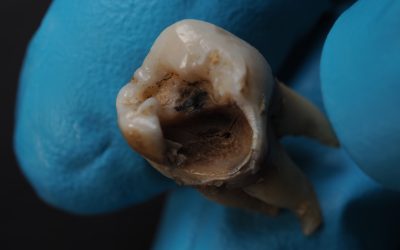A dental crown is a cap that sits over the entire tooth. The dentist can sculpt the crown to resemble a natural tooth, which means that there is a lot of freedom to fix the tooth’s appearance and function. For instance, people who have worn or misshapen teeth can benefit from this standard procedure to restore their teeth to their original state.
In general dentistry, the tooth crown procedure is also a method to protect the tooth from further tooth decay. It can also provide extra tooth structure for teeth that are weak and prone to cracking and crumbling.
The Dental Crown Procedure
The dentist will first prepare the tooth to receive the crown, which requires removing a bit of enamel from your tooth. The purpose of this step is to ensure that the crown aligns neatly with the rest of your teeth and with your gum line.
Once the dentist has prepared the tooth, they’ll take an impression of your mouth. They’ll use this impression to design your permanent crown. Most dental labs take around one to two weeks to manufacture the crown, so you’ll get a temporary crown to protect the tooth and keep you comfortable while you wait.
Once we receive the new crown, the dentist will contact you for a second appointment. We’ll check the crown’s fit and comfort during this appointment before cementing it into place. The practice also provides plenty of advice on how to take care of your new dental crown for maximum longevity and comfort.
Types of Dental Crowns
The type of crown you choose will depend on several factors, including the area of the mouth and your aesthetic needs. The most common types of dental crown include:
- Gold crowns: Gold crowns are strong, highly durable, and wear down relatively slowly. Dentists often use them for back teeth restorations.
- Porcelain crowns: Porcelain is less durable than many other crown materials, but it looks much better. Most dentists will use porcelain on front teeth that don’t experience much bite pressure.
- PFM crowns: These crowns consist of porcelain fused to metal. They provide the strength of a metal crown with the appearance of a porcelain crown.
- Zirconia crowns: The latest trend in dental crowns, these look great, are incredibly resilient, and biocompatible.
Alternatives
Cosmetic dentistry in Toronto is all about creating individualized treatment plans for every patient. In some cases, you may use tooth-colored fillings or veneers to cover minor cosmetic issues. If you want to find out more about crowns and if they’re the right procedure for you, give The Little Green Building a call at (416) 769-8135 today!





